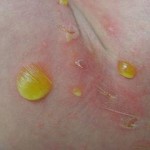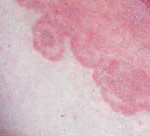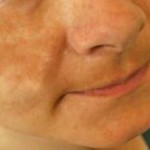 Impetigo is a disease that affects the skin, is caused by bacteria and is highly contagious and is also known as pyoderma and is a skin disease, infectious, highly contagious disease that is caused by different types of bacteria, streptococcus or group staphylococci. These bacteria commonly live on the skin and nose, but when there are small penetrating injuries causing an infection.
Impetigo is a disease that affects the skin, is caused by bacteria and is highly contagious and is also known as pyoderma and is a skin disease, infectious, highly contagious disease that is caused by different types of bacteria, streptococcus or group staphylococci. These bacteria commonly live on the skin and nose, but when there are small penetrating injuries causing an infection.
The infected areas acquire different forms such as redness, swelling, pus-filled blisters that burst when the fluid dries to form a honey-colored crust.
It mainly affects children under 2 to 6 years and its incidence is higher in summer and early autumn. It is highly contagious and easily spread to other areas of the skin, which are healthy, either the same person or another, which usually have poor hygiene or some injury that penetrates the bacteria.
Transmission can occur when an injury to the person, contact with mucus or saliva of a person who is carrying the bacteria, some of them are causing respiratory and throat. The disease begins between 5 and 7 days after you make the exposure.
Usually, with proper and timely treatment, the infection disappears between 7 and 10 days after infection.
When impetigo is caused by streptococcal bacteria can develop kidney disease.



